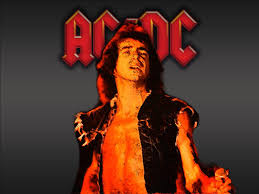Playstyle
Scott’s rough-edged vocals, streetwise lyrics, and irreverent attitude were a perfect match for the Young brothers' hard-hitting guitar riffs and relentless energy. Together, they forged a sound that would become one of the most influential in rock history.
Key Albums and Contributions:
Bon Scott's tenure with AC/DC was marked by a string of successful albums that helped establish the band as a major force in the rock world. Some of the most notable albums include:
High Voltage (1975): AC/DC's first internationally released album, featuring the hit "It's a Long Way to the Top (If You Wanna Rock 'n' Roll)." The song became an anthem for aspiring rock musicians and featured Scott playing the bagpipes, a nod to his Scottish heritage.
Dirty Deeds Done Dirt Cheap (1976): This album showcased Scott’s dark sense of humor and storytelling ability, with tracks like "Dirty Deeds Done Dirt Cheap" and "Big Balls."
Let There Be Rock (1977): Marked by heavier and more aggressive music, this album included the fan-favorite title track and the anthem "Whole Lotta Rosie."
Powerage (1978): Considered by some to be one of AC/DC's most underrated albums, Powerage highlighted Scott’s lyrical prowess with songs like "Riff Raff" and "Sin City."
Highway to Hell (1979): This was AC/DC’s first album to break into the US Top 100, and it remains one of their most iconic records. The title track, "Highway to Hell," became synonymous with the band’s image, and the album as a whole marked a high point in Scott’s career.
Legacy:
Despite his relatively short career with AC/DC, Bon Scott left an indelible mark on the band and the rock genre as a whole. His distinctive voice, cheeky personality, and lyrical talent helped define AC/DC’s early sound and set the stage for the band's future success.
After Scott's death, AC/DC considered disbanding but ultimately decided to continue with a new singer, Brian Johnson. The first album released after Scott's death, Back in Black (1980), was both a tribute to him and the band’s biggest commercial success. The black album cover and the songs "Hells Bells" and "Back in Black" served as a tribute to their fallen frontman.
Bon Scott is remembered as one of rock’s greatest frontmen, with a legacy that continues to influence countless musicians and fans. His time with AC/DC remains a defining era in the band’s history, and his contributions continue to resonate in the world of rock music.
